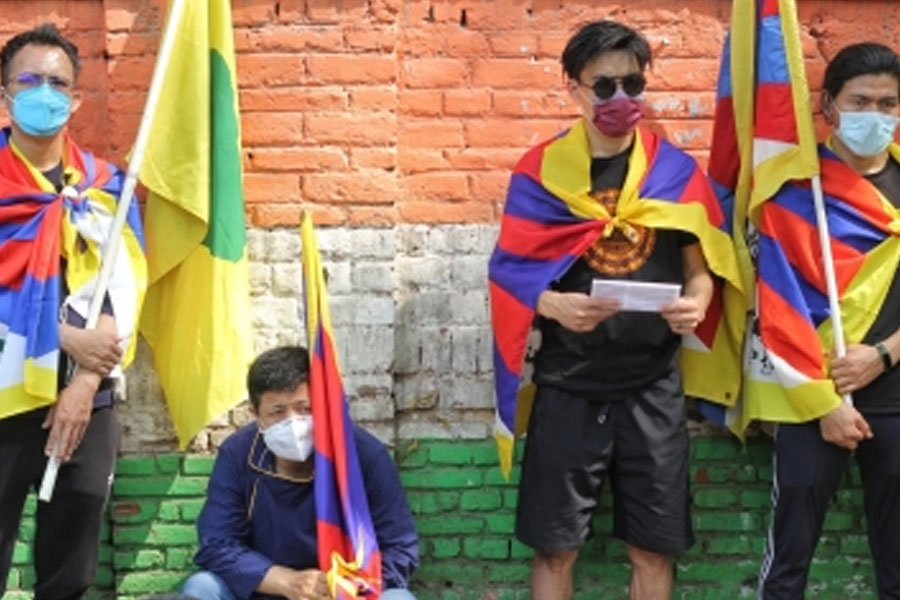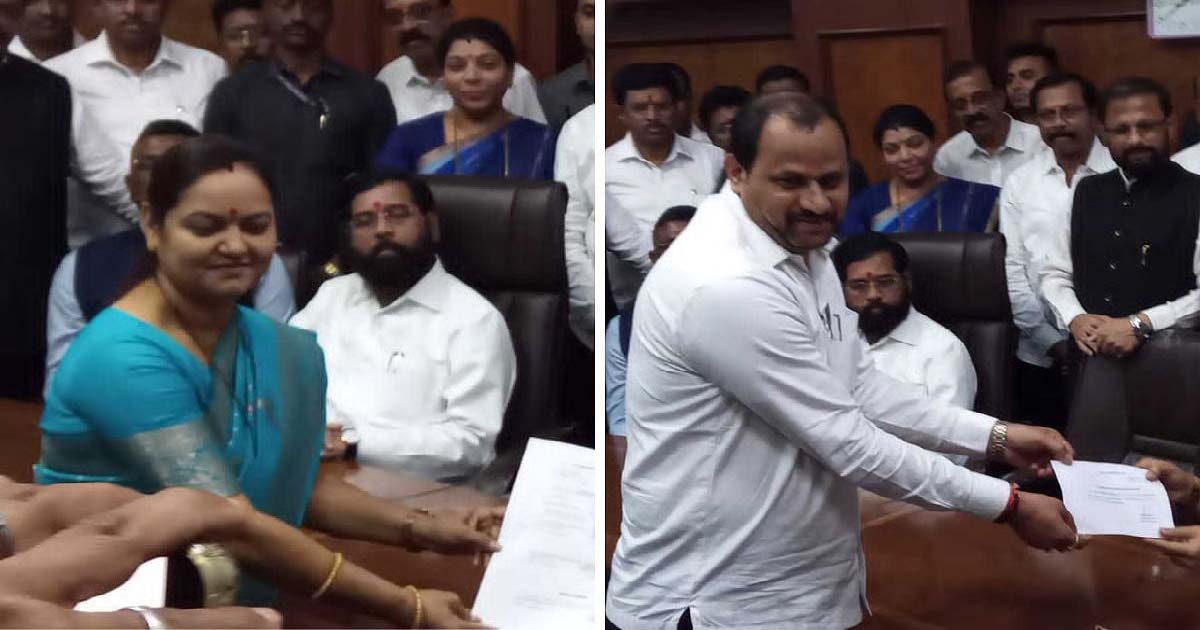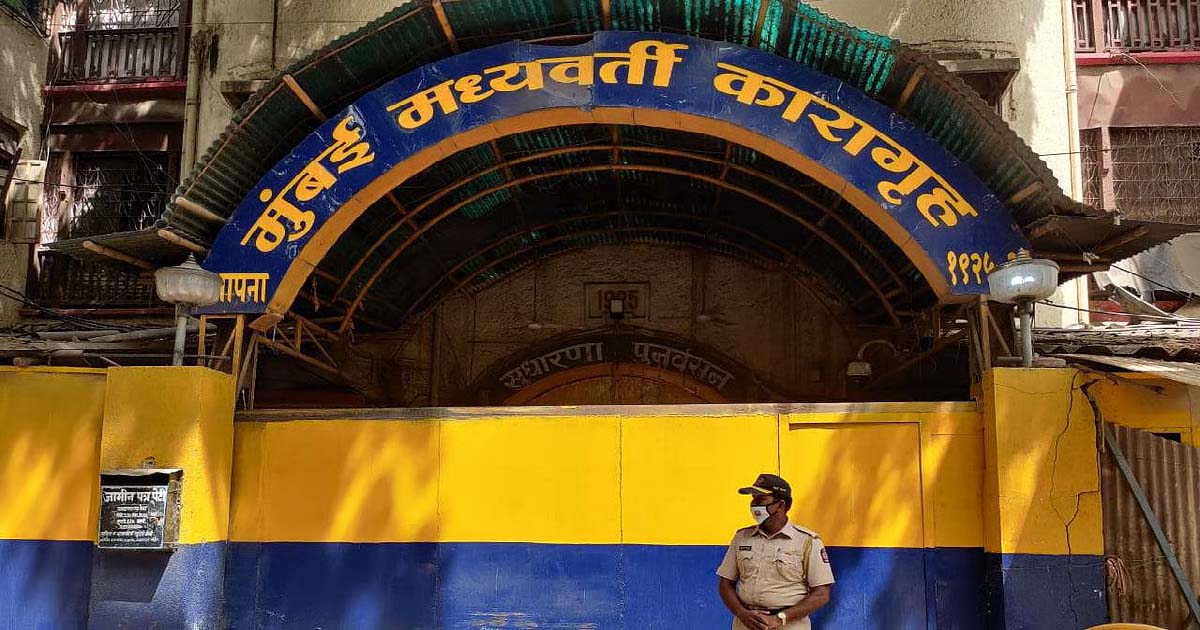National News
Tibetan groups protest against China

Several Tibetan organisations, including non-governmental organisations, political parties, student groups, etc., held massive protests in Himachal Pradesh’s Dharamsala against China’s repressive policies and illegal occupation in Tibet.
The Tibetan people in the hill state highlighted various incidents of atrocities and oppression by the Chinese government on the people of Tibet through various programmes.
Tibetan Women’s Association (a women’s group based in McLeodGanj, Dharamsala), National Democratic Party of Tibet (a major political party in the Tibetan government in exile), Gu Chu Sum Movement Association of Tibet (non-governmental organisation in Himachal Pradesh) and Students for a Free Tibet (global grassroots network of students and activists working in solidarity with the Tibetan people) held large-scale demonstrations against Chinese atrocities against the people of Tibet at the Main Square in Mcleodganj, Dharamsala on Sunday.
The International Justice Day was also celebrated on Sunday (June 17) by the Tibetan community living in India, inspiring people across the world to unite together for ensuring justice.
International Justice Day celebrates the importance of ensuring accountability concerning some of the most heinous crimes such as genocide, murder, forced detention, unjustified jail imprisonment, punishing the perpetrators of crime and bringing justice to the people.
Tsering Dolma, Vice-President of the Tibetan Women’s Association, said it was important to celebrate the International Justice Day by acknowledging the human rights violations inside Tibet by the dictatorial Chinese Communist Party.
She added that during the 20th century, the Chinese Communist Party began its invasion of Tibet in 1949 by annexing Tibet’s Amdo and Kham provinces.
After China illegally occupied the entire Tibet in 1959, a martial law was imposed to crackdown on the Tibetan resistance movement.
As many as six million people died in Tibet due to the invasion and illegal occupation by China, and many Tibetans were also forced to leave their homeland and live in exile, Dolma said.
The people of Tibet were denied justice and are fighting against atrocities committed against them violating basic human rights and freedom, she added.
The evidence of the human rights situation within Tibet is clear when His Holiness, the Panchen Lama, was forcibly abducted by the Chinese government at the age of six, Dolma said.
She added that due to the torture, cruelty and ill-treatment during his detention by the Chinese government, prominent Tibetan monk Jigme Gyatso had been unrecoverably ill since his release in 2016 after serving a five-year prison sentence when he pleaded guilty to “inciting separatism” in Tibet. Facing further health complications, Gyatso was hospitalised in Xiling in May this year and passed away on July 2.
On June 23, 2022, the Chinese police arrested a Tibetan woman Zumkar, for possessing a picture of the Tibetan spiritual leader, the Dalai Lama in her house in Tibet.
She said that many Tibetan people have lost their lives under harsh persecution, torture, imprisonment and extrajudicial killings due to Chinese oppression. China’s dictatorial policies have created a crisis in Tibet and provoked an unprecedented wave of self-immolations by monks, nuns and Tibetan people.
Tsering Dolma added that over the past decade, Chinese authorities have systematically closed local schools in Tibet and replaced them with colonised boarding schools, including those for primary age children.
By deliberately separating Tibetan children from their families and culture and keeping them in government boarding schools, Chinese authorities are using one of the most heinous means of colonialism to attack Tibetan identity.
Business
Centre’s fertiliser supplies to states scale record high of 530 lakh metric tons in April-December

New Delhi, Jan 30: Fertiliser movement from the Centre to the states on Indian Railways, during the first nine months (April-December) of the financial year 2025-26, reached an all-time high with total supplies crossing 530.16 lakh metric tons to surpass the 500 lakh metric ton mark for the first time during this period, an official statement said on Friday.
This represents a 12.2 per cent increase over the corresponding period of FY 2024–25 and is 8.5 per cent higher than the previous record of FY 2023–24, it said.
The Centre has ensured sufficient availability of all major fertilisers across states, including the supply of 350.45 lakh metric tons of urea, against a requirement of 312.40 lakh metric tons in the first nine months (April-December) of the financial year 2025-26. Similarly, in the case of major P&K (phosphorous and potassium) fertilizers including DAP, MOP & NPKS, the total supply reached 287.69 lakh metric tonnes against the requirement of 252.81 lakh metric tonnes, consistently exceeding the assessed requirement and ensuring uninterrupted availability, the statement said.
Faster and smoother movement of fertiliser rakes enabled timely supplies to states, ensuring that farmers did not face any shortages during the critical stages of cultivation. Department of Fertilisers worked in close cooperation with the Ministry of Railways and stated that such coordinated efforts have helped ensure adequate availability of fertilisers across the country, the statement added.
During this period, average rake loading on Indian Railways increased to 72 rakes per day in July 2025, rose to 78 rakes per day in August 2025 and reached 80 rakes per day in September 2025, according to the official figures.
Urea rake movement rose to 10,841 rakes, registering an 8 per cent increase over last year, while P&K fertilisers recorded 8,806 rakes, marking an 18 per cent growth. Enhanced coordination with the Ministry of Railways, ports, state governments, and fertiliser companies ensured seamless and timely supply to states during peak agricultural seasons, the statement said.
Ensuring the timely availability of fertilisers to farmers has remained one of the government’s highest priorities. In this direction, the improved coordination between the Ministry of Railways and the Department of Fertilisers during Kharif 2025 and the ongoing Rabi season was clearly visible at the ground level. The states also took concerted measures to ensure last-mile availability to farmers, the statement added.
National News
Shinde Sena’s Sharmila Pimpolkar Set To Become Thane Mayor, BJP’s Krishna Patil Deputy Mayor; Both Elected Unopposed

Thane: Sharmila Rohit Pimpolkar of the Shiv Sena (Shinde faction) is set to be appointed as the Mayor of the Thane Municipal Corporation (TMC), while Krishna Dadu Patil of the Bharatiya Janata Party (BJP) will assume charge as the Deputy Mayor. Both leaders were elected unopposed after filing their nominations on the final day for submitting nomination papers for the mayoral posts.
Pimpolkar filed her nomination for the Mayor’s post, while Patil submitted his papers for the Deputy Mayor’s position. No other candidates entered the fray for either post, clearing the way for their unopposed election. The official announcement confirming their appointments is scheduled to be made on February 3.
A meeting related to the mayoral election process was held at the Thane Municipal Corporation headquarters in the presence of Deputy Chief Minister Eknath Shinde. Several senior leaders attended the meeting, including Transport Minister Pratap Sarnaik, Thane MP Naresh Mhaske, BJP MLA Niranjan Davkhare, Ravindra Phatak and other party functionaries.
Meanwhile, reports indicated that the Shinde Sena has categorically refused the BJP’s demand to rotate the Mayor’s post for two years in Thane. In the recently concluded Thane Municipal Corporation elections, the Shinde Sena emerged as the dominant force with 75 seats, while the BJP secured 28 seats. Citing its clear numerical strength, the Shiv Sena has reportedly conveyed at the local level that it will not hand over the Mayor’s post to the BJP even for a year.
Following the refusal, BJP leaders are said to have staked claim to key power centres within the civic body, including the Standing Committee, Transport Committee, various subject committees, ward committees and the Education Board. Shinde Sena reportedly proposed that the BJP accept the Deputy Mayor’s post, while committees and ward panels could be shared between the two parties for fixed tenures of three and two years respectively.
Crime
Mumbai Crime: Undertrial Prisoner Assaults Policeman Inside Arthur Road Jail, Case Registered

Mumbai: A shocking incident has come to light from Mumbai’s Arthur Road Jail, where an undertrial prisoner allegedly assaulted a police constable on duty.
The accused, Lokendra Uday Singh Rawat (35), is reported to have headbutted Police Constable Hani Baburao Wagh (30), causing injuries to his nose, and also abused and pushed other on-duty police personnel. A case has been registered in this connection at the N. M. Joshi Marg police station.
According to the FIR, the complainant, Police Constable Wagh, is attached to Armed Police Division–2, Tardeo. On January 27, he reported for his 24-hour day-duty shift at Arthur Road Jail at around 8 am and was assigned security duty at the main entrance of the prison.
At around 9 pm, Armed Police Constables Suresh Sandu Mali and Sachin Chavan brought undertrial Lokendra Rawat back to the jail after producing him before the Dindoshi Court. Rawat allegedly appeared agitated and, after entering the jail premises, sat near the gate and began verbally abusing the police personnel on duty.
Constable Wagh asked Rawat to calm down and refrain from using abusive language. However, Rawat allegedly became more aggressive and continued shouting abuses. When Wagh approached him again to pacify the situation, Rawat suddenly headbutted him on the nose with force.
As a result, Constable Wagh sustained injuries and started bleeding. Fellow constables Sachin Chavan and Suresh Mali immediately intervened, restrained the accused, and informed the on-duty prison authorities about the incident. Rawat was subsequently sent for medical examination to Sir J.J. Hospital.
After receiving medical treatment, the injured constable lodged a formal complaint on January 28 at the N. M. Joshi Marg police station. Based on the complaint, police have registered a case against the undertrial under relevant sections of the Bharatiya Nyaya Sanhita (BNS). Further investigation is ongoing.
-

 Crime3 years ago
Crime3 years agoClass 10 student jumps to death in Jaipur
-

 Maharashtra1 year ago
Maharashtra1 year agoMumbai Local Train Update: Central Railway’s New Timetable Comes Into Effect; Check Full List Of Revised Timings & Stations
-

 Maharashtra1 year ago
Maharashtra1 year agoMumbai To Go Toll-Free Tonight! Maharashtra Govt Announces Complete Toll Waiver For Light Motor Vehicles At All 5 Entry Points Of City
-

 Maharashtra1 year ago
Maharashtra1 year agoFalse photo of Imtiaz Jaleel’s rally, exposing the fooling conspiracy
-

 National News1 year ago
National News1 year agoMinistry of Railways rolls out Special Drive 4.0 with focus on digitisation, cleanliness, inclusiveness and grievance redressal
-

 Maharashtra1 year ago
Maharashtra1 year agoMaharashtra Elections 2024: Mumbai Metro & BEST Services Extended Till Midnight On Voting Day
-

 National News1 year ago
National News1 year agoJ&K: 4 Jawans Killed, 28 Injured After Bus Carrying BSF Personnel For Poll Duty Falls Into Gorge In Budgam; Terrifying Visuals Surface
-

 Crime1 year ago
Crime1 year agoBaba Siddique Murder: Mumbai Police Unable To Get Lawrence Bishnoi Custody Due To Home Ministry Order, Says Report


















